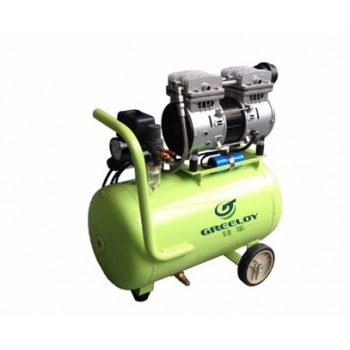When you’re using a poor-quality air compressor system that delivers either dirty air or an air compressor that delivers air at a lower pressure than required, you’ll see low-quality or even no operation of these devices. If air pressure is good, but the air itself is unclean, then you’re risking internal damage to those units, reducing their overall lifespan.

The biggest concern is moist air that can harm delicate internal machinery and quickly make your tools unusable. Moisture can lead to corrosion, microorganism contamination and decrease the precision of your tools. For those who select a low-quality air compressor, a common issue is carbon buildup that poses an even greater danger to the machinery in handpieces.
Electric dental handpieces also tend to have a greater cost and a higher number of parts that you’ll need to maintain, while air-driven pieces can be obtained in full, often for less than $1,000. Air-driven handpieces also tend to be lighter and easier to handle, with the latest innovations providing greater torque so you can use them for many applications over a longer period of time.
Oil-lubricated air compressors tend to be quieter and can last longer than other models, making them seem like a top choice for a dental office, but that may not be the case.
The main reason many dentists choose an oilless air compressor is because they have a lower risk of contaminating the compressed air with lubricant. These units also tend to be lighter, allowing them to be placed in a wider range of areas, while still creating as much air flow and pressure as many oil-lubricated models.
Removing the risk of contaminating the air is the biggest win and makes the most sense because it can protect the health and safety of your patients, staff and those in your office waiting areas. While you will need to perform maintenance slightly more often, the health and safety concerns significantly outweigh any benefit you’d see from using the heavier, lubricated models.